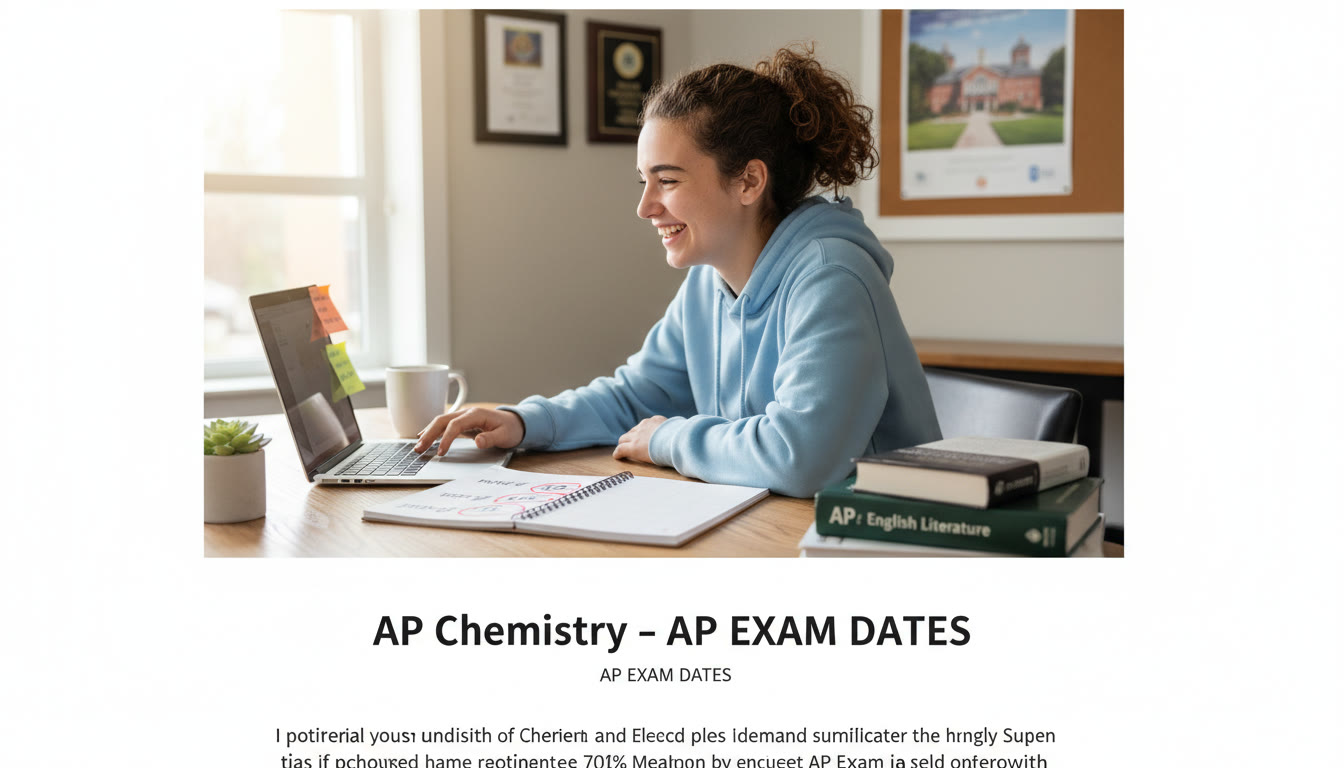Introduction: Why AP Matters for Lehigh’s P.C. Rossin and Business Aspirations
If you or your student are dreaming of P.C. Rossin Engineering or one of Lehigh’s competitive business paths, Advanced Placement (AP) work can be one of the most powerful signals in your application toolkit. AP courses demonstrate academic rigor, give you a chance to deepen subject mastery, and — when combined with strong scores — may earn college credit that lets you move faster into higher-level classes or explore minors, research, and internships earlier.
This post is written for students and parents who want a readable, strategic, and encouraging playbook: which APs to focus on, how to balance breadth and depth, how AP credit and placement typically behave in technical and business curricula, and how to prepare in a way that keeps you healthy and confident. Along the way you’ll find examples, a sample semester plan, a comparison table, and practical tips — plus notes on how personalized tutoring (such as Sparkl’s 1-on-1 guidance and tailored study plans) can fit naturally into your prep.
Understanding the Big Picture: Rigor, Readiness, and How Admissions See AP
Colleges like Lehigh want to see that you challenged yourself relative to what’s available at your school. That means taking the most rigorous courses you can handle while maintaining strong grades. AP’s value shows up in three ways:
- Admissions signal: AP courses show you sought tougher coursework — an important signal in competitive applicant pools.
- Academic preparedness: Success on AP exams suggests readiness for college-level work, especially in STEM and quantitative business fields.
- Practical benefit: High AP scores can lead to placement out of introductory classes or credits, giving you room in your schedule for internships, research, study abroad, or double majors.
Which APs Matter Most for P.C. Rossin Engineering and Lehigh Business
The ideal AP mix depends on your intended major, but there are core APs that are especially relevant for engineering and business students. Think of them as foundational building blocks.
Top APs for Prospective Engineers
- AP Calculus AB and BC — Essential. Many engineering curricula assume strong calculus skills from day one.
- AP Physics (1, 2, and/or C: Mechanics and Electricity & Magnetism) — Physics C is closest to engineering mechanics; Physics 1 and 2 build conceptual breadth.
- AP Chemistry — Useful for certain engineering disciplines (materials, chemical, environmental).
- AP Computer Science A — Increasingly important across engineering majors.
- AP Statistics — Valuable for data-driven courses and labs.
Top APs for Prospective Business Students
- AP Calculus AB or BC — Many business analytics, finance, and quantitative electives assume calculus or at least strong quantitative reasoning.
- AP Economics (Micro and Macro) — Directly relevant to business core concepts.
- AP Statistics — Highly applicable to business analytics, marketing, and finance.
- AP Computer Science A — Helpful for data-oriented concentrations and business technology tracks.
- AP English Language and Composition or AP English Literature — Strong writing skills are essential for business communication, case write-ups, and leadership roles.
How to Prioritize APs Across High School Years
Strategy matters. You want to show upward trajectory while avoiding burnout. Here’s a practical progression you can adapt to your school’s offerings and your prior preparation.
Example 4-Year AP Roadmap
- Freshman Year: Build foundations — honors math/science if available, AP Human Geography or AP Computer Science Principles if accessible.
- Sophomore Year: Take AP World History/European History or continue AP Computer Science, and begin AP Chemistry or AP Physics if you’re ready.
- Junior Year (Most Important): AP Calculus (AB or BC), AP Physics (1/2 or C), AP English Language, AP Statistics, AP Economics if interested in business.
- Senior Year: Continue with AP Physics C or AP Chemistry, AP Calculus BC if you took AB earlier, and advanced humanities APs that round out your profile. Use senior fall to maintain grades.
Table: Typical APs, What They Demonstrate, and How They Help in College
| AP Course | Demonstrates | Benefit for Engineering | Benefit for Business |
|---|---|---|---|
| AP Calculus AB/BC | Strong quantitative reasoning and problem solving | Placement in calculus sequence; readiness for engineering math | Foundation for analytics, finance, and quantitative electives |
| AP Physics 1/2 or C | Mechanics, electricity, and lab skills | Directly relevant to core engineering physics | Shows STEM literacy and analytical reasoning |
| AP Chemistry | Chemical principles and lab competence | Important for materials and chemical engineering | Useful for certain majors and demonstrates lab experience |
| AP Computer Science A | Programming fundamentals and algorithmic thinking | Valuable for software, robotics, and systems courses | Gives edge in data analytics and business technology |
| AP Statistics | Data literacy and interpretation | Supports experimental design and data analysis in labs | Directly useful for analytics, marketing, and finance |
AP Scores, Placement, and Course Planning — How to Use the Credit
Policies for awarding credit and placement vary by college and by department. Even without a specific policy table in front of you, here are practical ways students typically use AP results at selective schools like Lehigh:
- High AP scores (usually 4 or 5) may allow you to skip introductory lecture courses — for example, skipping introductory calculus or basic chemistry — which frees up your schedule for advanced electives or research earlier in your college career.
- Some departments prefer students to take the next course in sequence even if they have credit — especially in engineering, where departmental sequences and labs build tightly on each other. Always check departmental placement rules, and plan with advisors in your first weeks on campus.
- If you can earn credit for an intro course, consider using that flexibility to pursue a double major, a minor, undergraduate research, a study-abroad semester, or internships — experiences that make an undergraduate career more exploratory and rewarding.
Sample Senior-Year College-Prep Semester Plan (For AP-Focused Students)
Below is a balanced senior-year plan that preserves strong grades while maximizing AP readiness and application quality.
- August–September: Finalize your college list; schedule teacher recommendation conversations. For AP students, invite recommenders who can speak to your quantitative or lab strengths.
- October–November: Maintain coursework; submit applications where appropriate. Use weekends for targeted AP review sessions and practice exams.
- December–January: Take any early-action/early-decision tests or submit materials; continue reviewing for May APs with a study schedule focused on weak topics.
- February–April: Ramp up full-length AP practice exams under timed conditions; continue polishing essays and conducting mock interviews if needed.
- May: AP exam month — prioritize sleep, nutrition, and short targeted reviews the week of each exam rather than last-minute cramming.
Study Strategies That Work — Balance Smart Practice with Real Life
Studying for APs and maintaining a demanding high school schedule is more marathon than sprint. Here are time-tested habits that help students perform consistently without burning out:
- Use spaced repetition for formulas and key concepts — short daily reviews beat marathon sessions.
- Mix practice: alternate multiple-choice timed sets with free-response practice to build stamina and depth.
- Work with peers on problem sets — explaining concepts to others is one of the fastest ways to deepen understanding.
- Set weekly micro-goals (e.g., “finish three AP Calculus FRQs and review one experiment write-up”) to keep momentum and avoid overwhelm.
- Keep your wellbeing first: regular sleep, short exercise breaks, and good nutrition materially improve test performance.
How 1-on-1 Tutoring and Personalized Plans Help — Where Sparkl Fits In
Not every student benefits the same way from generic review books or group classes. Personalized tutoring can accelerate weak-to-strong transitions, especially for students aiming for STEM and business programs where depth and problem-solving speed matter.
Sparkl’s approach — one-on-one guidance, tailored study plans, expert tutors who know AP rubrics, and AI-driven insights that track progress — can be a force multiplier. Here’s how such a program typically helps:
- Identify high-leverage weaknesses quickly and focus limited practice time where it counts most.
- Provide targeted feedback on free-response answers (critical for AP Physics C, Calculus BC, and lab-based exams).
- Help simulate test-day conditions with realistic timed exams and targeted debriefs.
- Build a customized plan that coordinates AP prep with college-application milestones so neither is neglected.
When such help is used responsibly, it complements classwork and shows in both grades and AP performance — and it can be especially reassuring for families navigating the college process for the first time.
Common Mistakes Students Make — and How to Avoid Them
Awareness is half the battle. Here are frequent stumbles and simple fixes:
- Overloading APs early: Taking too many APs at once can hollow out your grades. Fix: stagger the hardest APs over junior and senior years and prioritize depth in your strongest areas.
- Relying solely on memorization: Many AP exams reward reasoning over rote recall. Fix: practice past free-response questions and explain solutions aloud.
- Ignoring college placement rules: Assuming credit automatically opens advanced courses can backfire. Fix: review departmental placement policies once admitted and consult advisors.
- Neglecting non-AP strengths: Leadership, research, and internships also matter for Lehigh. Fix: allocate time for meaningful extracurriculars that align with your academic interests.

Putting It Together: A Two-Month AP Review Plan (Example for AP Calculus BC / AP Physics C)
This condensed schedule assumes strong prior exposure. Tweak the pace as needed.
- Weeks 1–2: Diagnostic full-length practice exam. Identify weakest topics. Daily practice: 60–90 minutes focusing on core weaknesses + 30 minutes of timed multiple-choice practice.
- Weeks 3–4: Focused mini-units: spend 3–4 days on each weak topic with problem sets and at least one past free-response. Weekly full FRQ debrief.
- Weeks 5–6: Increase timed practice. Alternate full multiple-choice sections with full FRQs. Simulate test conditions twice.
- Weeks 7–8: Lighten the load. Short, high-quality review sessions, formula sheets, quick daily drills, and two final full-length practice tests spread out to preserve energy.
For many students, a tutor or coach who provides immediate feedback on FRQs and helps prioritize weak topics can shorten this timeline while improving scores.
Beyond AP: Making the Most of College When You Get In
If your AP work helps you place out of introductory courses or earns you credit, use the freed-up bandwidth intentionally. A few high-impact uses:
- Early research with faculty: Get involved in a lab or engineering project in your first year.
- Internships and co-ops: Start securing industry experience; business students can seek summer finance, consulting, or analytics roles.
- Electives and minors: Explore interdisciplinary interests like human-centered design, entrepreneurship, or environmental studies.
- Study abroad: Some students use an extra semester to spend time abroad without delaying graduation.

Final Checklist for Students and Parents
- Take the most challenging courses you can handle and do them well.
- Prioritize AP Calculus and relevant AP sciences for engineering; AP Calculus, Statistics, and Economics for business.
- Use practice FRQs and timed exams — not just passive reading — to build test-ready stamina.
- Confirm placement and credit policies with the university once admitted.
- Consider targeted, personalized tutoring (1-on-1 guidance and tailored plans) if you need focused improvement — it can be especially effective in honing FRQ writing and problem-solving speed.
- Remember to balance academics with meaningful extracurriculars, rest, and self-care.
Parting Thoughts: Your Path Is Individual — Build It With Confidence
There’s no single right recipe for reaching Lehigh’s P.C. Rossin Engineering or pursuing business excellence, but AP coursework is a potent ingredient when used thoughtfully. Aim for intellectual depth in subjects you love, maintain a sustainable pace, and use resources — whether teachers, peers, or personalized tutoring like Sparkl — to fill gaps efficiently. With steady effort, smart planning, and a curiosity-first mindset, you’ll arrive on campus ready to learn, lead, and explore.
If you’d like, I can now:
- Customize a four-term AP roadmap for your exact high school schedule and intended major.
- Create a two-month, day-by-day study plan for a specific AP exam (Calculus BC, Physics C, or AP Statistics).
- Draft a short, persuasive message you can send to potential recommenders asking for a strong AP-related letter.
Tell me which of these you’d like next, and I’ll craft it specifically for your situation.

















No Comments
Leave a comment Cancel